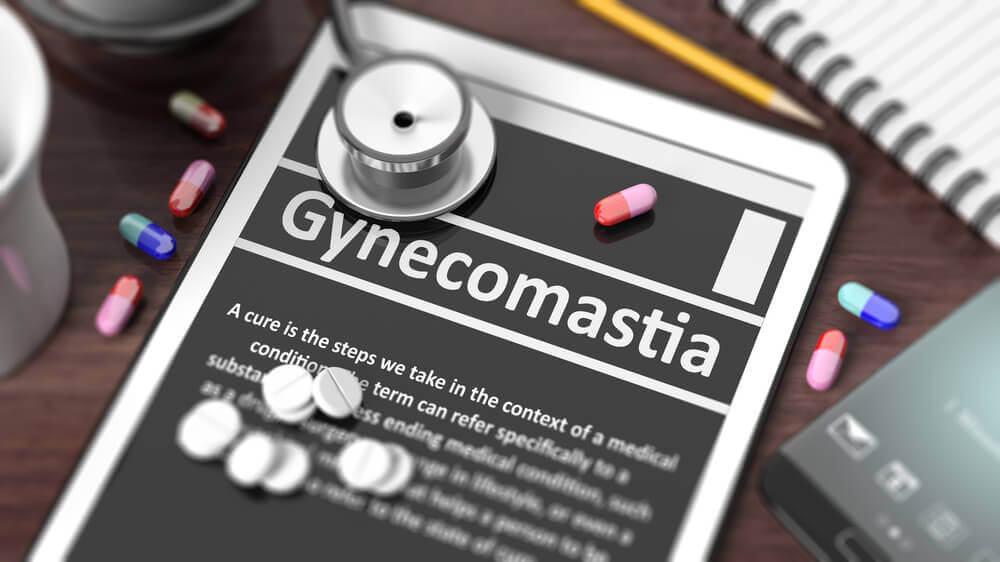Risperdal is an antipsychotic developed by Johnson & Johnson’s subsidiary, Janssen Pharmaceuticals. It was approved by the Food and Drug Administration for schizophrenia. Recently, the FDA expanded Risperdal’s approval to treat bipolar disorder, autism, depression, anxiety, sleep disorders and other psychological issues. Originally for adult use only, the FDA approved Risperdal for young children in 2006. This drug has one very serious side effect, though: gynecomastia. It’s not life-threatening or permanent, but full breast growth can cause serious psychological trauma in young men. In fact, many children prescribed Risperdal file gynecomastia lawsuits after turning 18.
How Does Risperdal Cause Gynecomastia?
Gynecomastia refers to abnormal male breast development in young men taking Risperdal. But gynecomastia breast growth doesn’t occur due to extra body fat (a common condition in overweight men). Rather, the drug’s dopamine-blocking effects cause additional glandular tissue production.
Affected young men develop breasts much like hormonally normal women do. A bump forms right below the nipple, eventually growing into a larger mass. Men with gynecomastia don’t always grow congruous breasts; sometimes, one is larger than other. Regardless of individual breast growth, lactation is also possible with gynecomastia.
So what causes this glandular tissue growth? Risperdal increases prolactin, the hormone that stimulates a woman’s breast development. While elevated prolactin levels also affect women (some girls lactate before puberty), it significantly impacts boys. In fact, some boys as young as 9 grow DD breasts.
Risperdal Gynecomastia Lawsuits Back in Action
Because severe breast enlargement necessitates surgery in some cases, more than 1,000 Risperdal gynecomastia lawsuits have been filed against manufacturer Johnson & Johnson in recent years. The pharmaceutical giant claims they have adequately warned both patients and doctors of the gynecomastia risks, but after some dispute, paid $2.2 billion to settle illegal marketing claims. The battle is far from over, however. Now Johnson & Johnson is accused of marketing off-label to young boys who were not sufficiently warned about the risk for gynecomastia.
Ultimately, Risperdal gynecomastia lawsuits don’t say the drug’s label omitted any side effect warnings. Rather, plaintiffs allege Risperdal was marketed illegally for off-label uses that weren’t FDA-approved. While approved solely for treating adult schizophrenia, Janssen marketed Risperdal for psychological conditions like ADHD, anxiety, and depression. Doctors then prescribed children Risperdal, despite no FDA approval for that patient population.
Many plaintiffs claim potential complications from elevated prolactin levels weren’t evident on Risperdal’s label. Many patients didn’t understand the implications of prolactin elevation. Yet others didn’t know what gynecomastia was at all. As a result, many families didn’t realize how severe this complication might be, and many children were affected. While gynecomastia is detrimental at any age, it can significantly traumatize adolescents. Young men with large breasts are often at the mercy of bullies. Ceasing Risperdal can halt glandular tissue growth, but some victims require surgery.
It’s unclear how much more Johnson & Johnson must pay Risperdal gynecomastia victims. However, one thing’s certain: It gives future plaintiffs hope.
What Can You Do?
The physical effects of gynecomastia may be reversible, but the psychological damage is not. If you experienced male breast growth while taking Risperdal, you may be eligible to file a Risperdal lawsuit. Start with your free case review to speak with an attorney in your area. A lawyer can tell you if you may qualify for financial compensation from the manufacturer.
Related: Find Your State’s Deadline to File an Injury Claim
